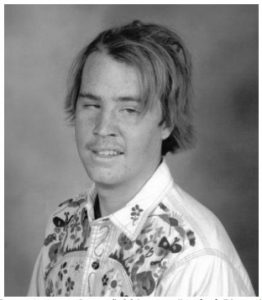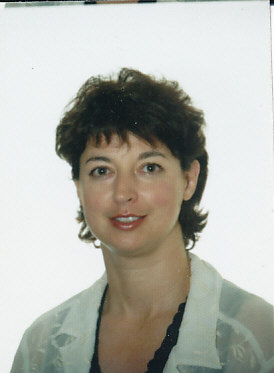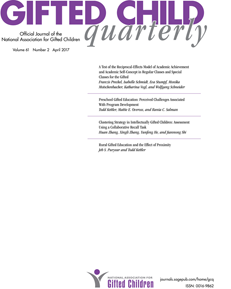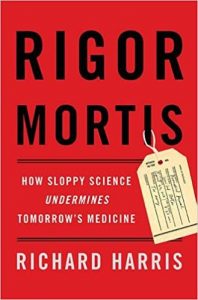 Reproducibility is everywhere recently, from the pages of scientific journals to the halls of the National Academy of Sciences, and today it lands in bookstores across the U.S. Longtime NPR correspondent Richard Harris has written Rigor Mortis (Basic Books), which is published today. (Full disclosure: I blurbed the book, writing that “Harris deftly weaves gripping tales of sleuthing with possible paths out of what some call a crisis.”) Harris answered some questions about the book, and the larger issues, for us.
Reproducibility is everywhere recently, from the pages of scientific journals to the halls of the National Academy of Sciences, and today it lands in bookstores across the U.S. Longtime NPR correspondent Richard Harris has written Rigor Mortis (Basic Books), which is published today. (Full disclosure: I blurbed the book, writing that “Harris deftly weaves gripping tales of sleuthing with possible paths out of what some call a crisis.”) Harris answered some questions about the book, and the larger issues, for us.
Retraction Watch (RW): Rigor Mortis begins with the story of the 2012 Nature paper by C. Glenn Begley and Lee Ellis that is now famous for sounding the alarm about reproducibility in basic cancer research. But as you document, this is not a problem that began in 2012. When did scientists first start realizing there was a problem? Continue reading “Failure is an essential part of science:” A Q&A with the author of a new book on reproducibility

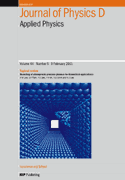
 A researcher in Germany has been banned from seeking money from the largest independent research funder in the country for five years after an investigation by her former employer found her guilty of misconduct.
A researcher in Germany has been banned from seeking money from the largest independent research funder in the country for five years after an investigation by her former employer found her guilty of misconduct.